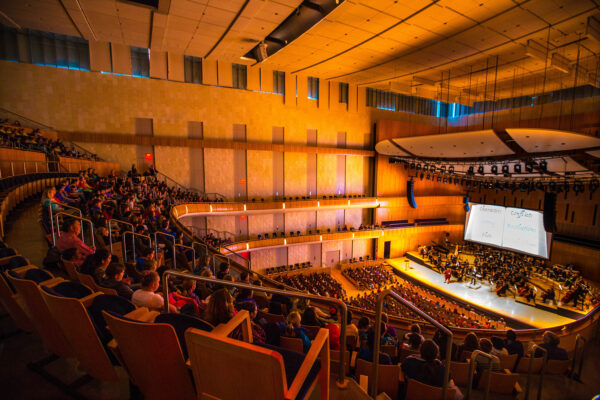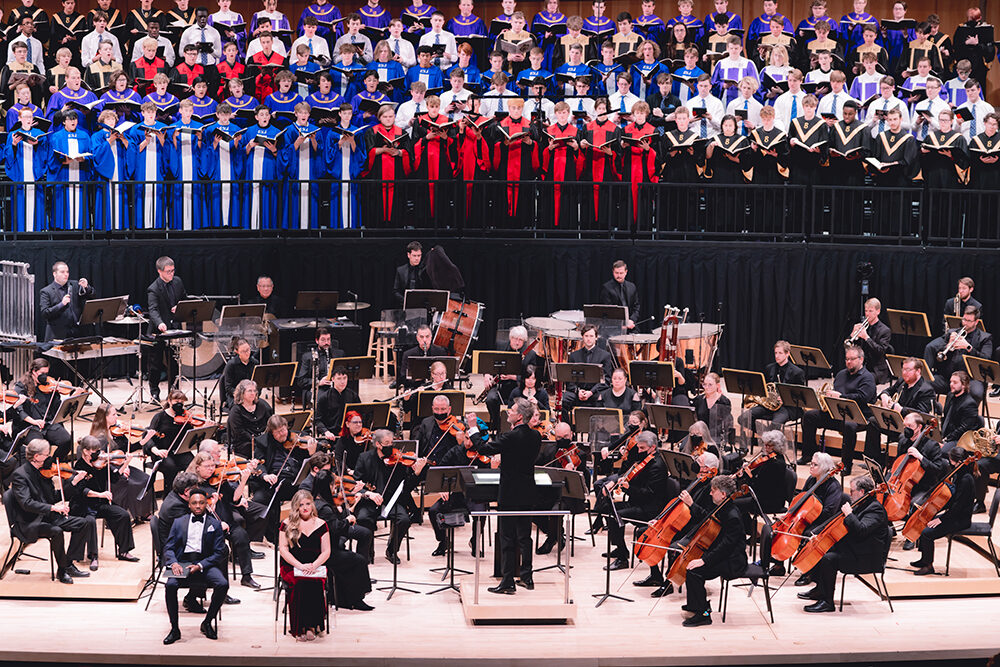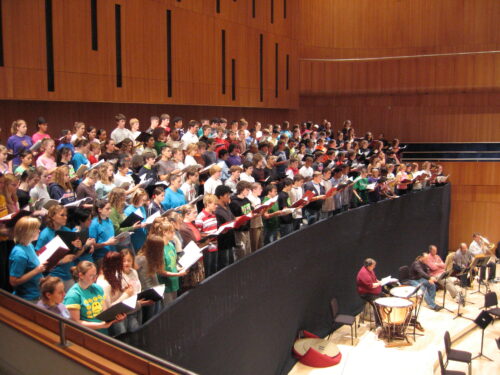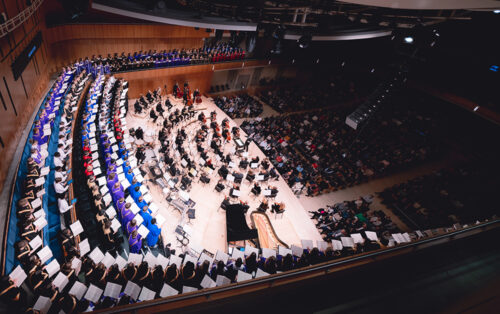
Find an escape at the Symphony
January 2, 2025
"The concerts transport me and give me sense that all is right with the world, and even though it is a fleeting illusion, I love experiencing this peace of mind."Friday, November 3
Before he leads singers from six local high schools in a performance of Brahms' German Requiem on November 12, Maestro Ernest Richardson talked us through the remarkable Choral Collaborative program, which gathers hundreds of choral students on stage to perform with the Omaha Symphony every year.

Q: What is the origin story of Choral Collaborative?
A: When I first moved to Omaha, I began poking around in the community to find out what made this particular community tick. My motivation was and is to serve this community with orchestral music. It quickly became clear that high school choral singing was at a very high level driven by uniquely effective teachers. I had the opportunity to visit with one of these teachers, Don Reimer, Bellevue West High School. The meeting with Don opened with two questions, “If your singers were to sing with my orchestra, would it be valuable to them? If so, what would this experience look like?” Don was incredibly enthusiastic about the possibility and we began talking about repertoire that would work.
Our first Choral Collaborative performance was at Bellevue West. It was very well-received by the students, the teacher, the audience and the orchestra. Based upon its success, the obvious next question was, “Do we do it again? And with whom?” Don wanted to do it the following year in order to keep the energy of the program going, and suggested additional directors with whom we could work.
The program went through many permutations over the years as we approached presenting bigger and bigger works in larger and larger spaces, until we presented some of the greatest masterworks written for chorus and orchestra at the Holland Center.

Choral Collaborative rehearsal in 2005
Q: Why do you do this every year?
A: At the core of Choral Collaborative origins is the recognition of the quality of teaching that is in Omaha, the enthusiasm of the directors for singing in big projects and a willingness of these directors to have this project be the primary focus for their students from the middle of August to the second week in November. The project takes place in the fall in order to become the standard bearer of choral singing for the rest of the school year.
Q: What is unique about this program?
A: When I think about what makes Choral Collaborative possible, it is clear that it is the work of the directors based upon the opportunity to perform with their Omaha Symphony at the Holland. We believe that a program of this nature is unique not only in the United States, but possibly in the world.
Q: What impact does this program have on students?
A: In addition to the opportunity for students to perform with the Omaha Symphony, we bring in major soloists who exemplify the singing that the directors, our chorusmaster (Dr. A. Barron Breland) and I have been teaching over the course of the preparation. The soloists are brought into the schools a week before the performance. When our guest soloists arrive, the students are done listening to us; the singers execute what has been described. We choose singers not only for the quality of their singing, but who also exude enthusiasm for spreading the artform to new generations of performers.
The first time the students hear a professional soloist, the light of epiphany is on all the faces of the students; they likely have never heard singing at this high level, up close and personal.
Because of these school visits, the students feel personally connected to the soloists, which then completes the cycle of director, orchestra, chorus and soloist and elevates this experience to one that changes the lives of the students.

2022 Choral Collaborative performance of Carmina Burana
Q: What can the audience look forward to in this concert?
A: The sound of 300 singing voices is unique. It is visceral, it is powerful. To this day, I remember the first chorus of that size singing in the Holland concert hall. I thought, I’ve been changed forever. When you take the ‘in the moment’ passion of teenagers and connect it to a great work of music, there is a palpable response to their enthusiasm. What the voices lack in maturity, they make up in numbers and emotional commitment. This creates an experience that is unmatched for the audience.
One of the most gratifying aspects of this program is at the conclusion of the program, when I speak with and thank the students. In this moment, they, their orchestra and even to some extent even me -- are rockstars. When we think about the fact that these ‘rockstars’ are performing masterworks for chorus and orchestra, that gives me hope for the future of our children and the future of our artform.
Love the Omaha Symphony?
Be the first to learn about new concerts, stories, and special offers.